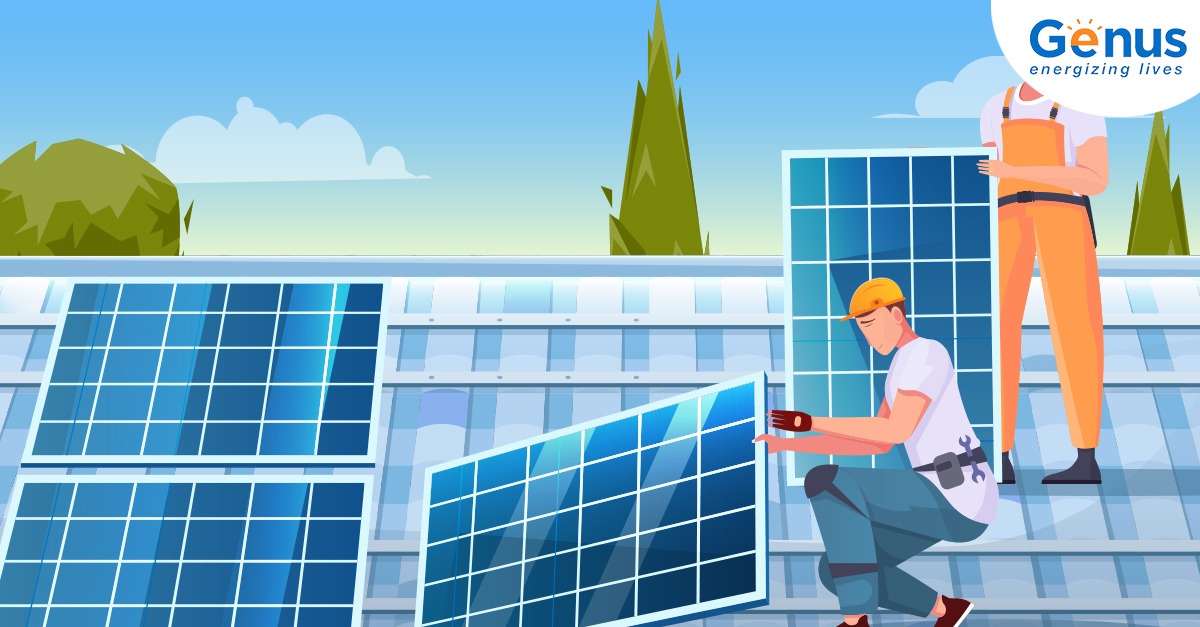
Solar panels have witnessed increased adoption in the past few years and for good reason. They help produce clean, green energy. But they are prone to a few common problems as well. However, the pros overweigh the cons by a huge margin. Now, when it comes to solar panel problems, most people look for solar panel repair centres near them. And finding a good and affordable one might be challenging at times. Since solar panel problems affect several uses across the world, it is natural to look for ways to fix problems with solar energy production at home. So, this blog talks about some common problems with solar panels and how you can fix them on your own.
Common Solar Panel Problems
Here are some of the most common solar panel problems that you might face.
Zero Power Output
A faulty inverter or solar charge controller is one of the biggest reasons for zero power output in a solar energy system. Since solar panels are connected in series, problems with one solar panel can cause other modules to fail as well.
Low Power
In a low power situation, the solar system doesn’t deliver adequate power as per its rating. This is a common issue and can be fixed with a few, quick troubleshooting steps.
Loose Wiring
Individual PV cells are connected to each other as well with the inverter and solar batteries. The whole system contains a lot of wiring that can fail, leading to unexpected electrical issues.
Also Read: A Handy Guide to Solar Panel Wiring
System Overheating
Excessively high temperatures can cause your solar panel to underperform. While it is not an indication of faulty panels, it is quite common during the hottest days of the year.
Dirty System
Environmental factors like dirt and dust can also cause performance issues in your solar panel system by covering the cells.
Steps for Solar Panel Troubleshooting
Wondering how to fix solar panel on your own? Here are some easy steps that you can perform to check if your solar panels are working properly without calling for expert help.
Step 1: Check the Breaker Switches
You might find it hard to believe, but a fused breaker switch can be the reason behind most of your solar panel problems. So, one of the first steps you should perform while troubleshooting the solar panel problem is to check the breaker switches. Overloads, surges, or glitches can trip the switch and prevent the system from generating electricity and supplying it to the appliances.
Also Read: Effective Ways of Maintaining Solar Panels
Step 2: Check for Obstructions
Shading can drastically impact your solar panel’s performance and capability to generate power. Make sure that the panels are getting direct sunlight and there is no obstruction in front of them. Obstruction can range from tree shade, building shade, to shade from adjacent panels, accumulated dirt and debris, animal droppings and more.
Also Read: How Shade Affects Solar Panel Efficiency?
Step 3: Check the Solar Inverter
Every PV system has a solar inverter. It is an important component that converts the generated DC power into usable AC power. The inverter being connected loosely or not connected at all is also a reason for zero power output. Check the inverter and see if the light is green, yellow, red, or flashing. Green means it is okay while other colours can indicate a problem. You can call a solar technician and ask them to take a look.
Also Read: What Do You Need to Know About the Different Types of Solar PV Systems?
Step 4: Check your Solar Meter
Solar meters collect the history of energy generation by your solar panel. This provides insight into the performance of the panel. If it is decreasing over time, there is something wrong with your solar system. You can even compare past data with current data to detect any anomalies.
Takeaway
While these tips are not guaranteed to solve every problem of solar energy production, they can help you resolve most solar-related issues. Solar panels come with a guarantee of 20 to 25 years and it is common for some solar panel problems to creep up now and then. So, monitor your solar system regularly to stay on top of issues and get them fixed early on.
Caution:
Risk of Electric Shock – Solar panels generate DC current that is more dangerous than AC current if not handled carefully. It should only be troubleshot in the presence of trained technical personnel. Genus does not recommend troubleshooting on your own.
